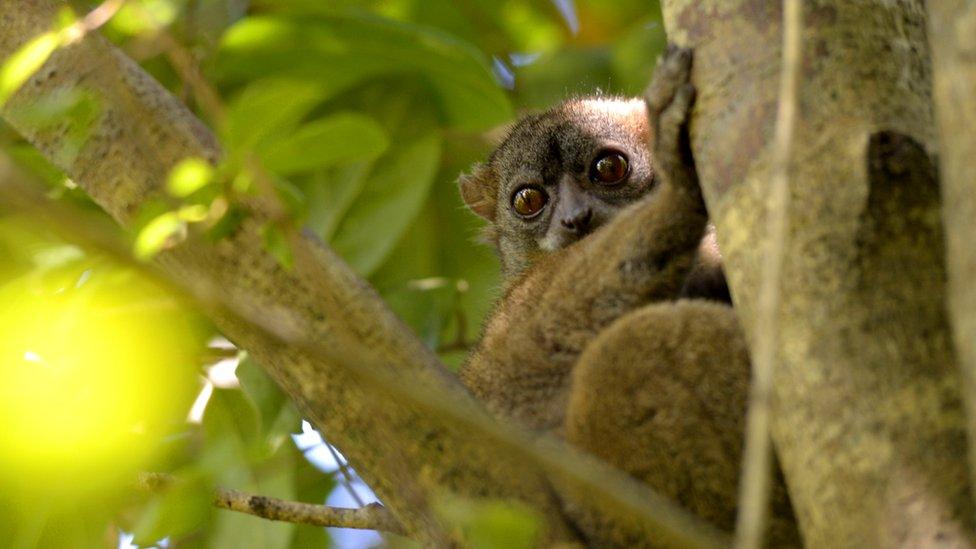Lemur's birth at Wild Place Project in Bristol 'significant' for species
- Published
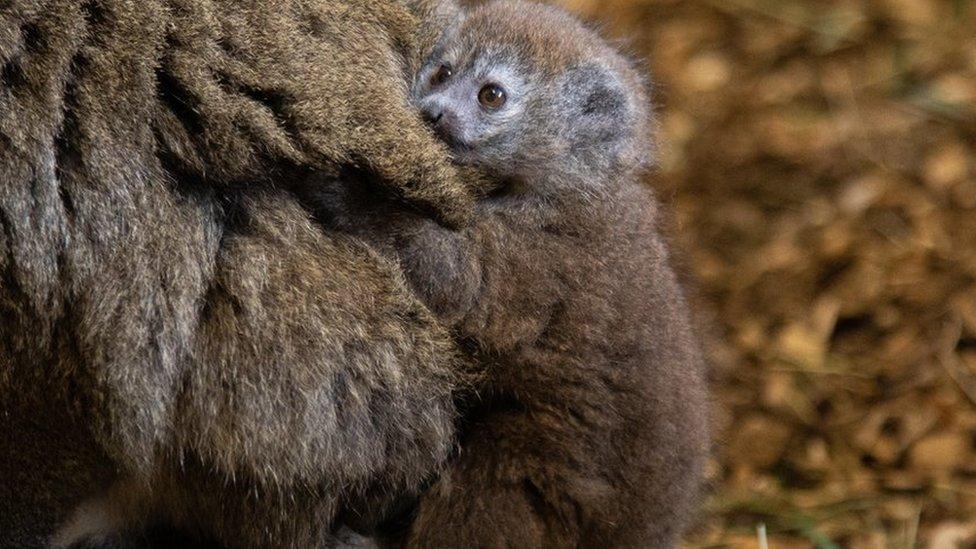
Currently the lemur is clinging onto its mother but will be able to move around on its own in a couple of months
The birth of a lemur at a conservation project is "especially significant" in ensuring the survival of its species, keepers have said.
The Alaotran gentle lemur weighs less than an apple and it may take six months to find out its gender.
Born at the Wild Place Project, near Bristol, it is the third to be born to its mother and father in three years.
Animal team leader Joe Norman said: "The infant is making great progress and is really healthy."
He added: "The infant is clinging onto its mum and will occasionally be passed on to its dad so visitors stand a very good chance of seeing it."
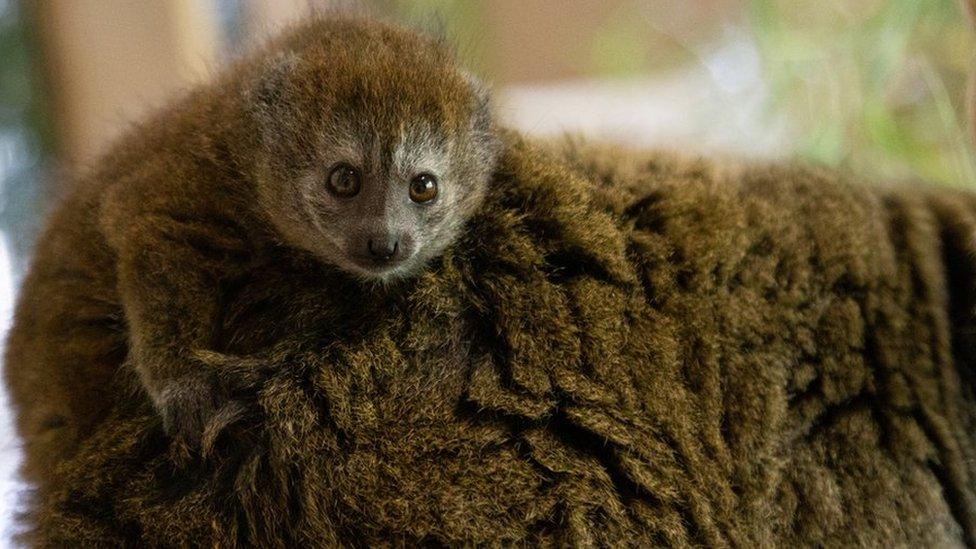
Alaotran gentle lemurs are classified as critically endangered by the International Union for Conservation of Nature
The baby lemur will start to move around on its own in a couple of months.
Its species is classified as critically endangered by the International Union for Conservation of Nature because their habitat has been converted for farming in their native Madagascar.
Even when fully grown, it will only be between 30cm and 40cm (11.8in to 15.7in).
Mr Norman said: "Because of the difficulties gentle lemurs are facing in the wild, the success of the captive breeding programme is vitally important.
"There are currently just 71 gentle lemurs known to exist in zoos across the world and only 17 in the UK, meaning that Bristol Zoological Society has 14% of the ex-situ population, more than any other institution."

Follow BBC West on Facebook, external, Twitter, external and Instagram, external. Send your story ideas to: bristol@bbc.co.uk , external
Related topics
- Published9 July 2020
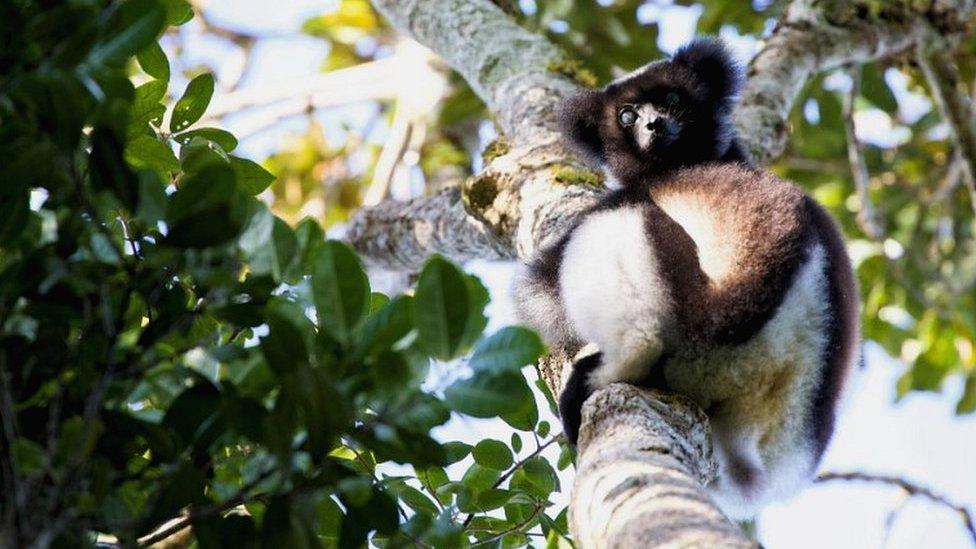
- Published21 May 2021
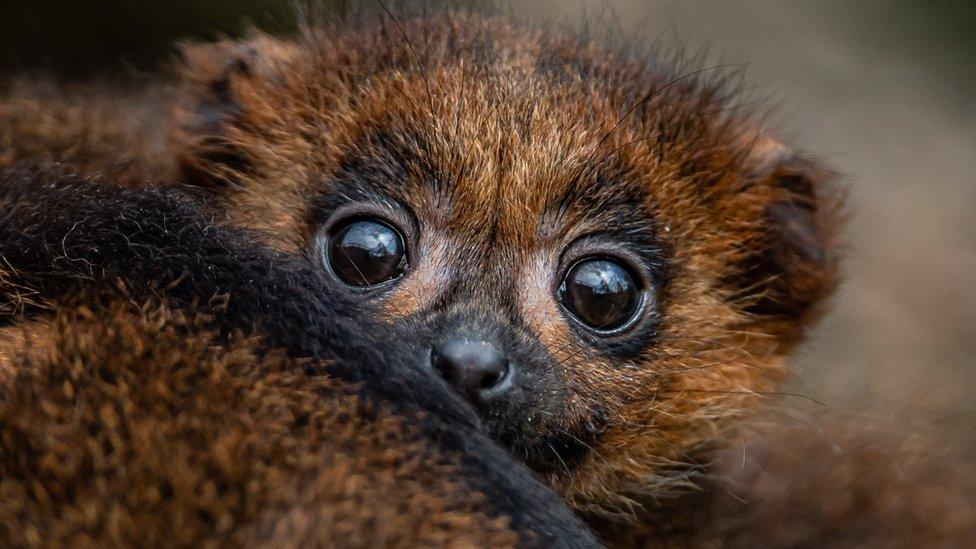
- Published2 August 2018
